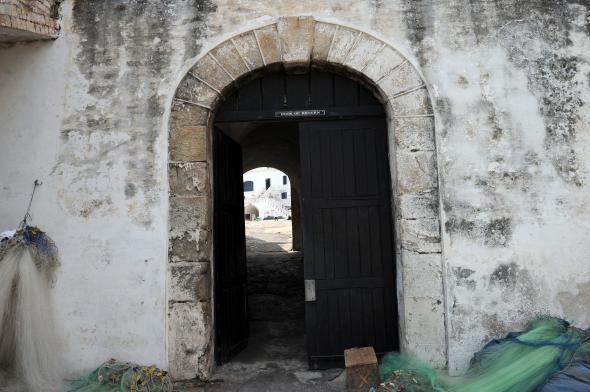The Times reports that a group of 14 Caribbean countries are planning to take legal action against former colonial powers Britain, France, and the Netherlands, demanding reparations for the trans-Atlantic slave trade:
Martyn Day, the senior partner at Leigh Day, the London law firm acting for the Caribbean countries, said a case could start next year at the International Court of Justice in The Hague, a tribunal that adjudicates legal disputes among states.
“What happened in the Caribbean and West Africa was so egregious we feel that bringing a case in the I.C.J. would have a decent chance of success,” Mr. Day said. “The fact that you were subjugating a whole class of people in a massively discriminatory way has no parallel,” he added.
Some Caribbean nations have already begun assessing the lasting damage they suffered, ranging from stunted educational and economic opportunities to dietary and health problems, Mr. Day said.However, another news story today illustrates why these countries have little chance of winning their case. The European Court of Human Rights has ruled that it can’t judge whether Russia has done enough to investigate the 1940 Katyn massacre of 22,000 Poles because it “took place before the adoption of the European Convention on Human Rights in 1950.” The same argument will likely apply in the slavery case—the ICJ is unlikely to pass judgment on crimes that took place before its creation. The countries seem to have been emboldened by the British government’s decision earlier this year to pay reparations to Kenyans tortured by colonial authorities during the “Mau Mau” rebellion in the 1950s. The same law firm has been retained in both cases. However, in the Kenyan case there were living victims alive to receive compensation. The same applies to the nearly $90 billion in payments Germany has made to Holocaust victims over the last 60 years. While the effects of the slave trade certainly still persist in the countries filing claims, it’s unlikely that the court will be willing to put a number on them. Francois Hollande’s government has shown more willingness than its predecessors to address past crimes. Hollande has publicly discussed the deportation of French Jews during the Holocaust, condemned the 1961 massacre of protesters during the Algerian war, and acknowledged the “suffering that colonialism inflicted on the Algerian people.” However, he has rejected the idea of slavery reparations, saying, “History cannot be rubbed out. It cannot be subjected to an accounting process that… would be impossible to complete.”
